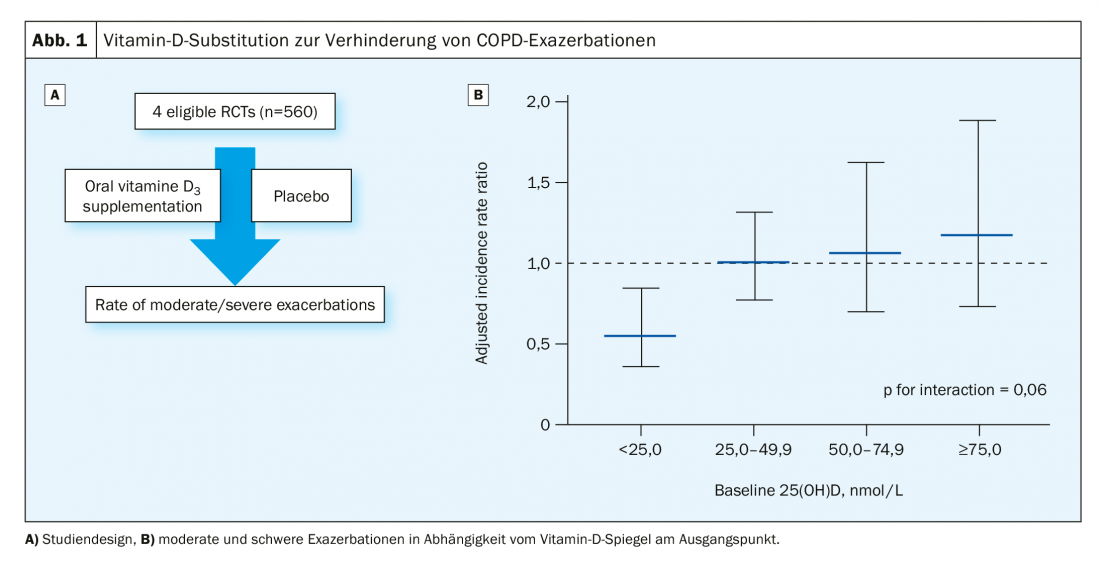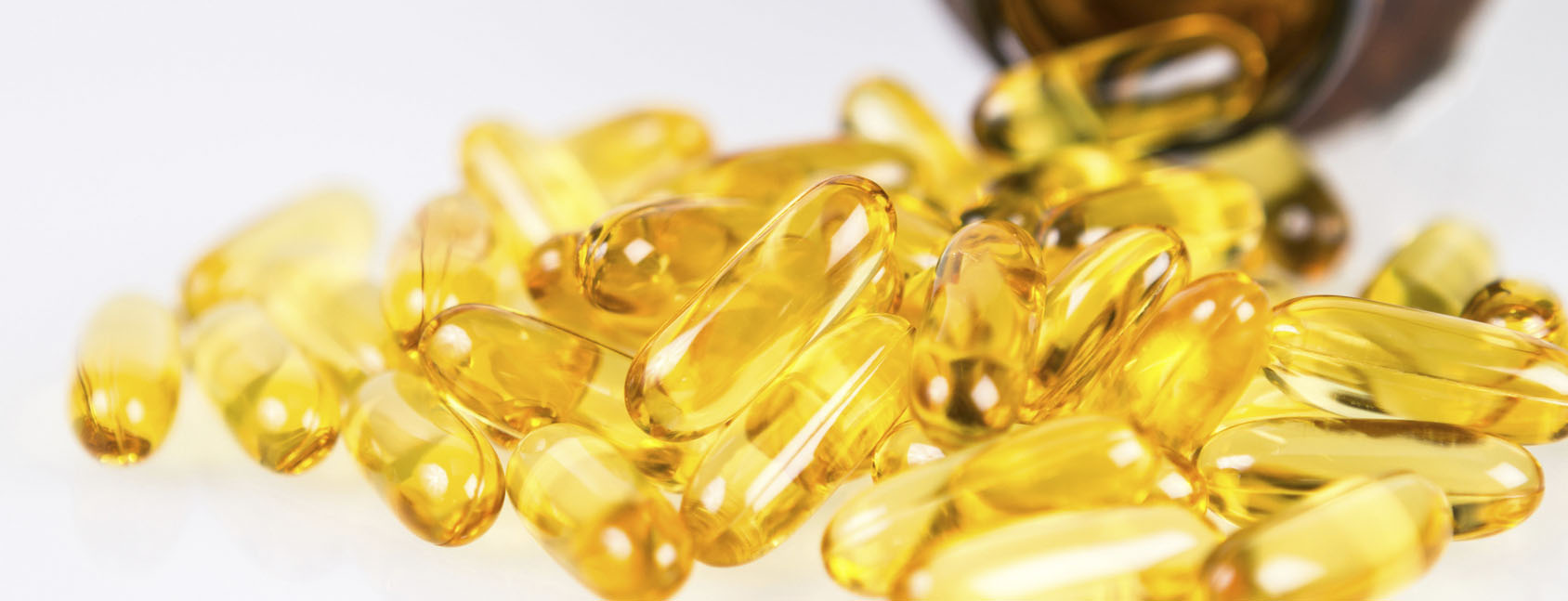Vitamin D deficiency appears to be associated with an unfavorable prognosis in a wide range of diseases. Conversely, substitution is thought to have a variety of beneficial effects, and it certainly seems to have a positive impact in the context of exacerbation prevention in COPD.
The systematic review and meta-analysis [1] pooled patients from four randomized controlled trials (RCT) (n=560) who received oral vitamin D3 vs. placebo. Patients were evaluated for rates of moderate to severe exacerbations.
The result was presented by Professor Dr. Claus Vogelmeier, Department of Internal Medicine, Focus Pneumology, University Hospital Giessen and Marburg, at the Pneumo-Update in Mainz (D): When evaluating the overall population, the rate ratio for moderate/severe COPD exacerbations in the intervention group was 0.94. Thus, no relevant effect of substitution was detectable. However, when patients were broken down by their vitamin D levels, a clear signal emerged in the subgroup with baseline low vitamin D levels: protective effects were detectable in participants with baseline measured vitamin D levels <25 nmol/l (adjusted RR 0.55). In contrast, this effect was not seen with vitamin D levels of at least 25 nmol/l (adjusted RR 1.04) (Fig. 1).

Thus, in the presence of reduced vitamin D levels, substitution may have potentially significant beneficial effects on exacerbation rates. Therefore, it should be considered for the future whether the administration of the drug could also be used as a preventive measure in patients with recurrent exacerbations.
Conclusion
- Vitamin D substitution in patients with recurrent exacerbations and low blood levels should be considered.
- The therapy is inexpensive and safe.
Literature:
- Jolliffe DA, et al: Vitamin D to prevent exacerbations of COPD. Thorax 2019; 74: 337-345.
InFo PNEUMOLOGY & ALLERGOLOGY 2019; 1(3): 36.











